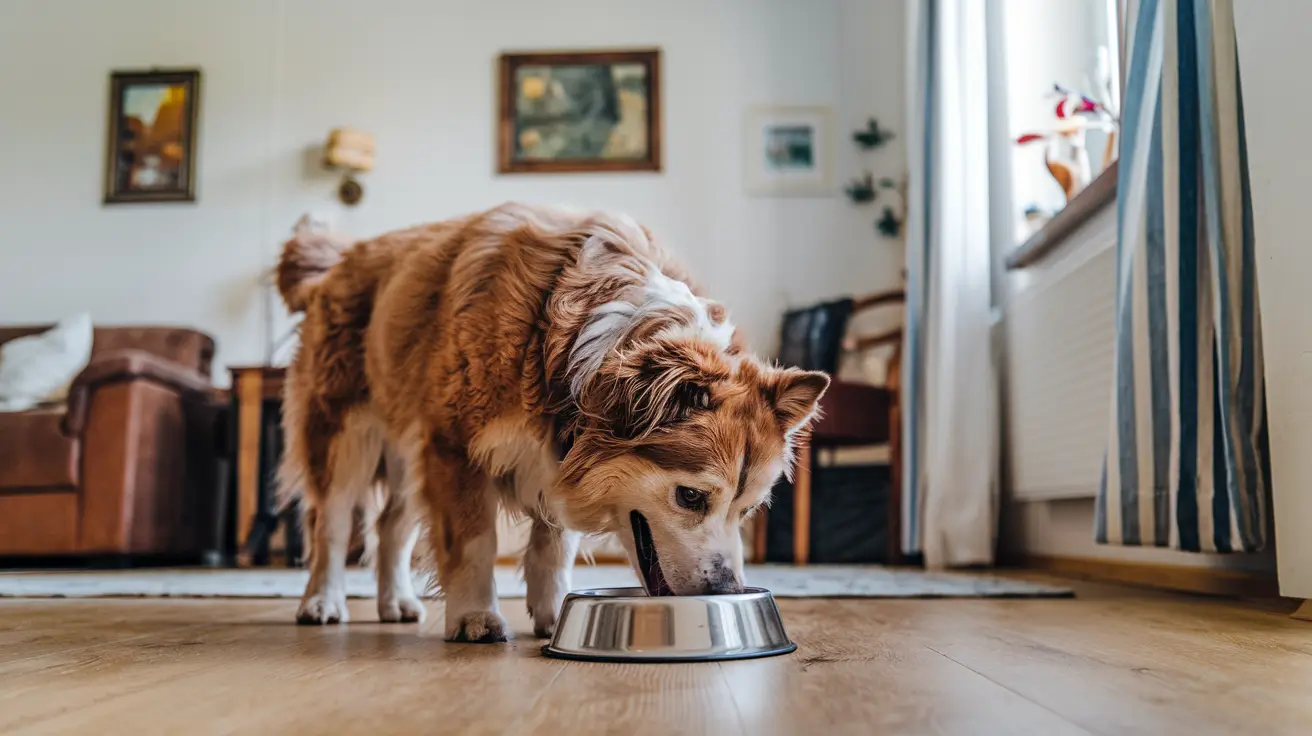Understanding Canine Constipation
Constipation in dogs is a common issue that pet owners may encounter, and it is essential to monitor your dog's bowel habits closely. Recognizing deviations from their normal routine can help identify constipation early on. Mild symptoms include straining during bowel movements, producing small or hard feces, and taking longer than usual to defecate. However, if left unchecked, constipation can lead to more severe symptoms that require immediate attention.
When to Consult a Veterinarian
While mild constipation can often be managed at home, certain severe symptoms necessitate a prompt veterinary consultation. Signs such as vomiting, lethargy, a distended belly, and a lack of appetite indicate a more serious condition that requires professional intervention. If your dog has not defecated in over 48 hours or shows any of these severe symptoms, it is crucial to seek veterinary care to rule out underlying health issues. Consulting a veterinarian before attempting home remedies is especially important for recurrent constipation, as it may signal a deeper medical problem.
Home Remedies for Mild Constipation
For dogs experiencing mild constipation, several home remedies can provide relief. Start by checking your dog's rear end for any visible obstructions and ensuring they have access to fresh water at all times. Hydration is key, so consider placing multiple water bowls around the house or adding low-sodium chicken broth to their food to encourage drinking. Dietary adjustments can also help; incorporating fiber-rich foods like canned pumpkin and probiotics can aid in regulating bowel movements. Canned dog food can increase moisture in the intestines, while coconut and olive oil serve as natural stool softeners when used sparingly.
Enhancing Hydration and Exercise
Adequate hydration plays a significant role in preventing constipation. To encourage your dog to drink more water, you might use water fountains or elevated bowls. Additionally, regular physical activity is crucial for stimulating bowel movements. Engaging your dog in daily walks and playtime can significantly improve their digestive health and reduce the likelihood of constipation.
The Role of Fiber and Probiotics
Fiber is an essential component of a dog's diet that aids in digestion. Safe options like psyllium can be beneficial, but it's important to consult with a veterinarian before making significant dietary changes. Probiotics also play a vital role in maintaining a healthy gut by restoring the balance of beneficial bacteria, which can improve overall digestive function and help prevent constipation.
Caution with Laxatives and Enemas
While laxatives might seem like a quick fix for constipation, they should not be used without veterinary guidance. Misuse can lead to adverse effects, and only certain laxatives are safe for dogs under professional supervision. Similarly, enemas should never be administered at home unless specifically instructed by a veterinarian, as they can cause harm if done incorrectly.
Frequently Asked Questions
Pet owners often have concerns about how long a dog can go without pooping and what dietary changes might help alleviate constipation. Generally, if a dog has not defecated in more than 48 hours, it is time to consult a veterinarian. Gradual dietary changes, rather than sudden ones, can help maintain normal bowel function and prevent constipation. Introducing new foods slowly allows the digestive system to adjust without causing undue stress.
In conclusion, managing constipation in dogs involves a combination of monitoring, home remedies, and professional guidance. By understanding the symptoms and taking proactive steps, pet owners can help their dogs maintain healthy bowel habits. If constipation persists or severe symptoms arise, seeking veterinary care is essential to ensure your dog's well-being. Always prioritize professional advice when dealing with your pet's health, and consider preventive measures to keep your dog happy and healthy.






